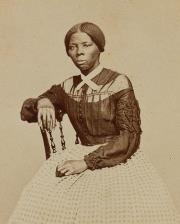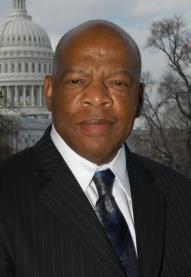|
Monday, June 28, 2021
 President Biden signed legislation on June 17, 2021 making Juneteenth a national holiday which was commemorated for the first time this year. It marks the day 156 years ago of June 19, 1865 when enslaved Blacks in Texas were told about their freedom. Unfortunately, slavery had not been eradicated completely throughout the United States after June 19, 1865, either by not being abolished by law or through loopholes in then-existing laws. It was not until the ratification of the 13th Amendment on December 6, 1865, that slavery was abolished by law. Even then, slavery still existed in part in certain pockets to be described in a part 2 of this topic. Read more . . .
Monday, June 14, 2021
 While the rights of LGBTQ persons are becoming more accepted, as with the recent Presidential Proclamation on Lesbian, Gay, Bisexual, Transgender, and Queer Pride Month making June LGBTQ Pride month, employment discrimination based on biased gender stereotyping and other forms of sexual identity, gender orientation and sexual orientation still exist. June was chosen as the special month for LGBTQ Pride because the Stonewall riots took place in June of 1969. The Stonewall riots in New York City are the most widely known of LGBTQ resistance/confrontation historical events. While the Stonewall rebellion was not the first such public resistance/confrontation against systemic harassment and arresting of LGBTQ persons in modern times, it is the one that made the lasting difference. For a history of the Stonewall Riots, click here. Read more . . .
Monday, June 7, 2021
 New Jersey employers may require employees to receive the COVID-19 vaccine in order to enter the physical workplace according to policy issued on NJ State Government website. The EEOC issued a press release last week with a similar stance, that Federal laws do not prevent an employer from requiring all employees physically entering the workplace to be vaccinated for COVID-19, so long as employers comply with the reasonable accommodation provisions of the ADA and Title VII of the Civil Rights Act. An exception to a mandatory vaccine policy may be when an employee has been advised by their medical doctor not to get the COVID-19 vaccine while pregnant or breastfeeding. Other possible exceptions are when an employee has a disability that prevents them from receiving a COVID-19 vaccine, or has a sincerely held religious belief, practice or observance that precludes them from getting vaccinated, i.e. Read more . . .
Monday, May 31, 2021
 As experience attorneys know, there are no guaranteed wins in court, no guaranteed slam dunks even in what would appear to be cases with simple issues. Courts disagree among one another and Justices in the same Court frequently disagree among themselves when rendering a decision. A recent case involving an unemployment appeal is illustrative. In this matter, The NJ Supreme Court recently considered whether pretrial detention premised on charges that are later dismissed should be considered a voluntary separation from work that automatically disqualifies an applicant from unemployment benefits under the Unemployment Compensation Law. The claimant Haley was denied unemployment benefits and he appealed the denial of benefits. Read more . . .
Monday, May 24, 2021
 If Harriet Tubman were to be alive today, it is likely she would be working to get the Bill to restore the Voting Rights Act, introduced by the Senate on July 22, 2020, passed. This bill is named after John Lewis, the civil rights leader who served in the United States House of Representatives for Georgia's 5th congressional district from 1987 until his death in 2020. This bill is a response to the Supreme Court’s 2013 Shelby County v. Holder decision which set aside major parts of the 1965 Voting Rights Act, which eliminated barriers making it difficult for Blacks to vote. The John Lewis Voting Rights Advancement Act would require that any state with a history of voting discrimination within the past 25 years to seek federal approval before making any changes to its voting procedures. Read more . . .
Monday, May 17, 2021
 I Got Covid-19 at Work, Can I Get Workers’ Compensation? The Covid-19 virus has ravaged New Jersey and decimated many NJ workplaces, forcing many to close for weeks or even months at a time. It is not just hospital workers who may have caught the Covid-19 virus in the workplace. Many employees in other professions caught the virus from someone at work. There is a Strong Presumption in the Law for Most Workers in Most Types of Jobs That a Covid-19 Related Disability Is a Compensable Claim. Some workers and employers wrongly believe that Covid-19 related disabilities are never covered under the NJ Workers Compensation statute. Read more . . .
Monday, May 10, 2021
 If your employer under the New Jersey Earned Sick Leave Law refuses to give you permission to take time to care for yourself or a family member who has become unwell due to the Covid-19 virus or who won’t pay you for that time as mandated by the law, you should contact this office. Some employers are attempting to skirt his law, violating this law, as the pandemic is now in the midst of its second year impacting employees and their families. If your employer retaliates against you for your asking for such time off, you may also have a retaliation claim against your employer. Under this statute, an employee is permitted to use accrued earned sick leave as it relates to the Covid-19 pandemic for any of the following reasons: (1) time needed for diagnosis, care, or treatment of, or recovery from, an employee’s mental or physical illness, injury or other adverse health condition, or for preventive medical care for the employee; (2) time needed for the employee to aid or care for a family member of the employee during diagnosis, care, or treatment of, or recovery from, the family member’s mental or physical illness, injury or other adverse health condition, or during preventive medical care for the family member; (3) time during which the employee is not able to work because of a closure of the employee’s workplace, or the school or place of care of a child of the employee, by order of a public official due to an epidemic or other public health emergency, or because of the issuance by a public health authority of a determination that the presence in the community of the employee, or a member of the employee’s family in need of care by the employee, would jeopardize the health of others. The definition of “family member” in this statute is broad. Read more . . .
Monday, May 3, 2021
 “Help! My employer is grilling me about statements I gave to the Workers’ Compensation insurer.” Being out of work because you were injured on the job can be extremely financially burdensome. The fact that you were injured because you were trying to do your job seems doubly unjust. Applying for and receiving Workers’ Compensation benefits can help relieve some of the financial burden. However, some unscrupulous employers will retaliate against an injured worker for seeking Workers’ Compensation benefits. Read more . . .
Monday, April 26, 2021
 If you are an IT worker who is feeling the sting of age discrimination, you are not alone. Even if you are an IT worker for an employer who is not a tech company, you still may be experiencing age discrimination because there is a perception that younger workers will automatically be more knowledgeable about innovative industry trends. This is true even if you are the IT Systems manager for a public entity such as a town or a school. Younger workers are shown favor simply because of their age. Don’t sit on your rights. Read more . . .
Monday, April 19, 2021
 On July 22, 2020, the Senate introduced a bill to restore the Voting Rights Act. It’s named after John Lewis, the civil rights leader who served in the United States House of Representatives for Georgia's 5th congressional district from 1987 until his death in 2020. The Honorable John Lewis was the chairman of the Student Nonviolent Coordinating Committee (SNCC) from 1963 to 1966. He is known for being one of the main leaders who organized the 1963 March on Washington along with Martin Luther King Jr., James Farmer, Bayard Rustin, Roy Wilkins, Whitney Young, and Philip Randolph. Read more . . .
Wednesday, April 14, 2021
 If your employer previously gave you good performance evaluations but is now giving you poor evaluations or even putting you on a “PIP”, a Performance Improvement Plan, you should call this law office today. I have successfully represented numerous employees of both public and private employers, who were unfairly placed on a “PIP” and given a warning to improve or risk termination. This undeserved downturn in evaluations is a ruse sometimes utilized by employers to have a trumped-up justification to fire an employee. Things to be noted are: Workload Increase Has your workload recently increased? If your workload significantly increased prior to the PIP, it could be that the employer is specifically setting you up to fail by setting unrealistic goal markers. Job Duty Changes If your job description and/or duties changed prior to the PIP, your employer could again be preparing to have an “alleged” legitimate reason to terminate you. Read more . . .
|

|
|
|